Russia is located in Eurasia (the combined continental landmass of Europe and Asia). It is the largest and one of the most popular countries in the world. Here are the 15 interesting Facts About Russia you might have not known.
General Facts About Russia (At a Glance)
- Total Population: 144,5 million people
- Capital: Moscow
- Life expectancy: 71.87 years (Males: 66.5 & Females: 77.06)
- Highest Mountain: Mount Elbrus (5642 meters)
- Land area: 17,125,191 km2 (6,612,073 sq mi)
- Largest Lake: Lake Baikal
- National Day: June 12
- Government: Federal dominant-party semi-presidential constitutional republic
- President: Vladimir Putin
- Currency: Russian ruble (₽) (RUB)
- Official language: Russian.
- Religion: No official religion, but about 40% are Russian Orthodox.
- Member of Nato: No
- National song: “State Anthem of the Russian Federation”
- Time zone: UTC+2 to +12
- Country Number/Prefix: 007
- Country Code: RU
The Flag of Russia
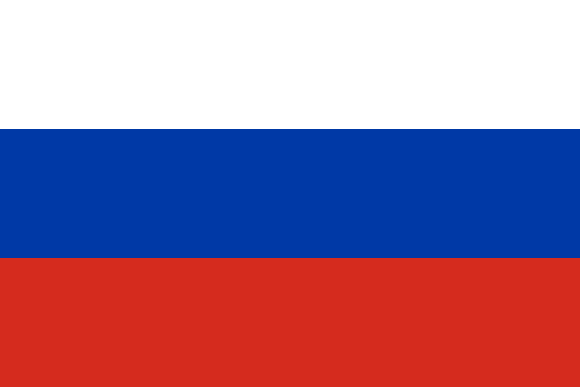
15 Interesting Facts about Russia
1. World’s Largest Country by Area

Russia, the world’s largest country by area, spans an impressive 17 million square kilometres (6.6 million square miles), accounting for more than one-ninth of the Earth’s total terrestrial area. This vast expanse stretches across Eastern Europe and Northern Asia, making Russia a land of diverse landscapes and climates.
Here are some intriguing facts about Russia: It shares land borders with 14 countries, including Norway, China, and Mongolia, making it a critical geopolitical player. The country features a wide range of environments, from the tundra of Siberia to the subtropical beaches of the Black Sea. Additionally, Russia boasts the world’s deepest lake, Lake Baikal, which is also the largest freshwater lake by volume.
Culturally, Russia is rich and varied, with over 190 ethnic groups and more than 100 languages spoken. Its historical contributions to literature, science, and the arts are profound, featuring luminaries like Leo Tolstoy and Anton Chekhov. With its remarkable size and cultural heritage, Russia continues to captivate and intrigue those who seek to learn more about this unique nation.
(Source: BBC)
2. Russia is as Big as Pluto
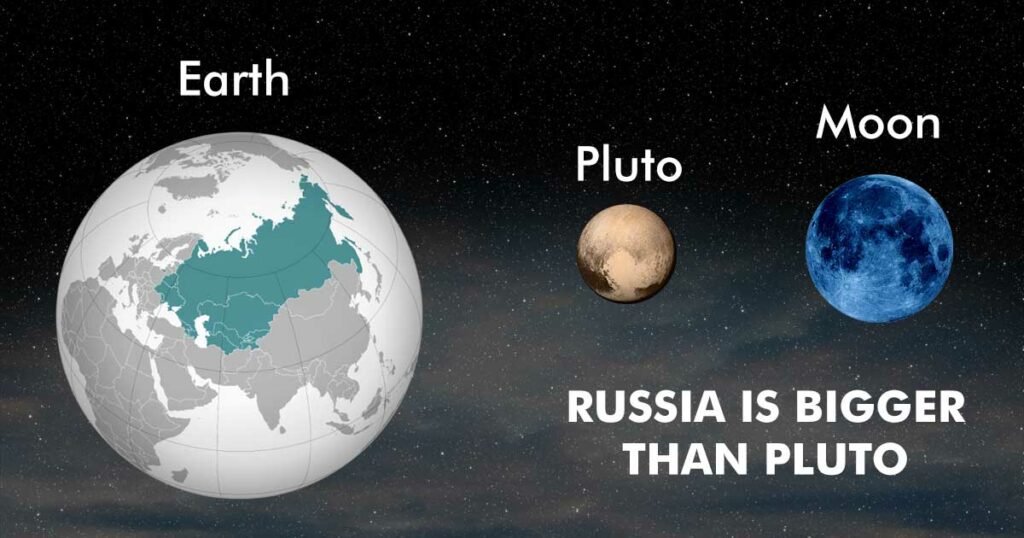
Russia is astonishingly vast, with a land area of 17,125,191 square kilometers, making it almost as large as Pluto, which measures approximately 16,647,940 square kilometers. This remarkable comparison highlights just how immense Russia is, as it covers a significant portion of the Earth’s surface.
In fact, Russia’s territory encompasses a wide array of geographical features, from expansive plains and rugged mountains to dense forests and vast tundras. This diversity contributes to its status as the largest country in the world. With such a massive area, Russia experiences a variety of climates, ranging from the harsh, frigid temperatures of Siberia to the milder conditions of its western regions.
These Russia facts reveal not just the country’s size, but also its ecological and cultural richness. From the Arctic Ocean in the north to the Black Sea in the south, Russia’s vastness is home to numerous ethnic groups, each contributing to the country’s rich tapestry of history and culture. Understanding the scale of Russia provides a deeper appreciation for its unique role on the global stage.
(Source: NASA)
3. Russia lies in both Europe and Asia
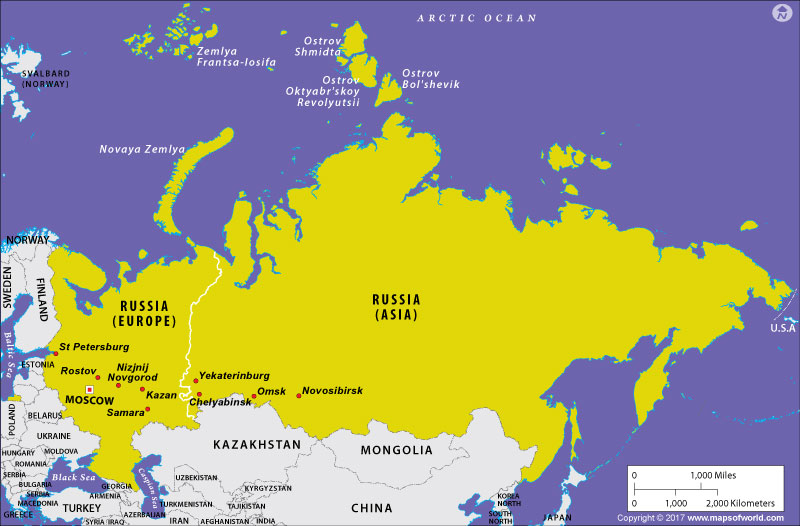
Russia is a fascinating transcontinental country, spanning both Europe and Asia. Approximately one-quarter of its vast territory lies in Europe, while three-quarters extend into Asia. This unique geographical position not only makes Russia the largest country in the world but also highlights its diverse cultural and demographic landscape.
Despite the significant landmass in Asia, only about 22% of the population resides in this region. Most Russians live in the European part, where major cities like Moscow and St. Petersburg are located. This demographic distribution reflects historical, economic, and social factors that have shaped the country over centuries.
Some interesting Russia facts include its rich cultural heritage, with over 190 ethnic groups and a variety of languages spoken across its regions. The stark contrast between the densely populated European territories and the sparsely inhabited Asian expanses adds to the complexity of Russian identity. Understanding this transcontinental nature of Russia provides valuable insights into its geopolitical significance and the diverse experiences of its people.
(Source: World Atlas)
4. Russia shares a border with 14 countries
Russia shares a border with 14 countries Share on XRussia shares a border with 14 different countries in the world. Which is more than any country in the world.
- Norway
- Finland
- Estonia
- Latvia
- Lithuania
- Poland
- Belarus
- China
- Ukraine
- Georgia
- Azerbaijan
- Kazakhstan
- Mongolia
- North Korea.
(Source: The Telegraph)
5. More time zones than any other Country
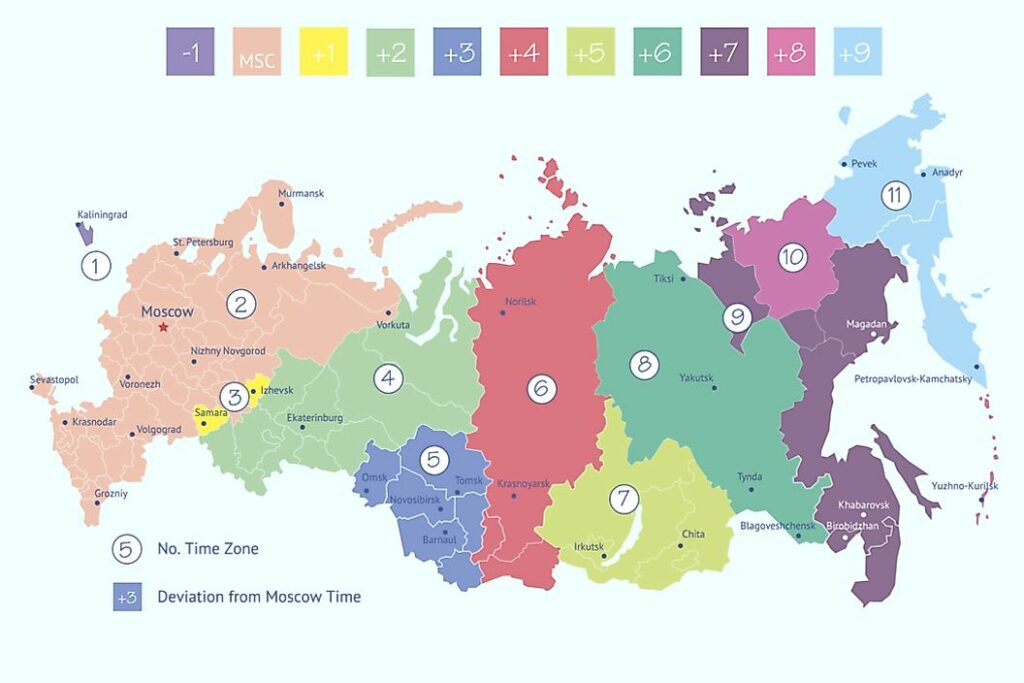
Russia is unique in many ways, one of which is its vast number of time zones. The country spans an incredible 11 time zones, more than any other nation in the world. This extensive range reflects Russia’s immense size, stretching from the western borders near Europe to the eastern reaches of the Pacific Ocean.
Each time zone accounts for the significant differences in daylight experienced across the country. For instance, when it’s noon in Moscow, the capital, it could be as late as 7 PM in the far eastern city of Vladivostok. This variation not only affects daily life but also impacts business operations, transportation, and communication across the nation.
These Russia facts highlight the logistical challenges and cultural diversity found within its borders. The time zones contribute to a rich tapestry of regional identities, with each area observing local customs, traditions, and lifestyles. From the bustling streets of Moscow to the remote villages in Siberia, the variety of time zones exemplifies the complexity and grandeur of this transcontinental country.
(Source: World Atlas)
6. Deepest Lake in the World
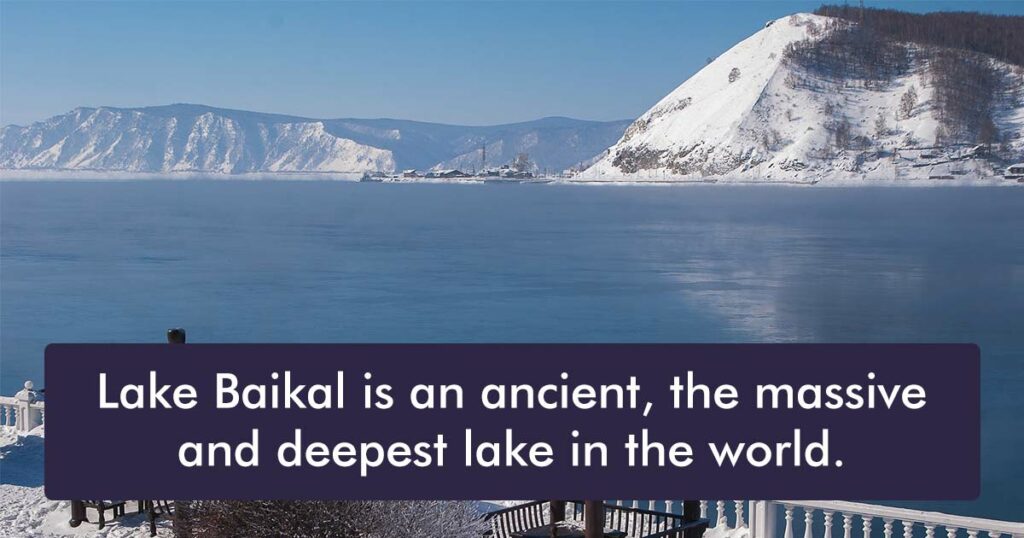
The deepest lake in the world, Lake Baikal, is located in Russia and is an extraordinary natural wonder. This ancient lake, estimated to be around 25 million years old, reaches a depth of approximately 1,642 meters (5,387 feet), making it not only the deepest lake but also one of the most unique ecosystems on the planet.
Lake Baikal holds about 20% of the world’s unfrozen freshwater, a staggering amount that underscores its significance in global water resources. The lake is home to a diverse range of flora and fauna, including the famous Baikal seal, which is found nowhere else in the world.
These remarkable Russia facts highlight Baikal’s ecological importance and its status as a UNESCO World Heritage site. The surrounding area is rich in biodiversity, featuring stunning landscapes and unique geological formations. As a popular destination for tourists and researchers alike, Lake Baikal continues to captivate those who seek to explore its depths and understand its vital role in our planet’s freshwater supply.
(Source: Britannica)
7. Deadliest Lake in the World
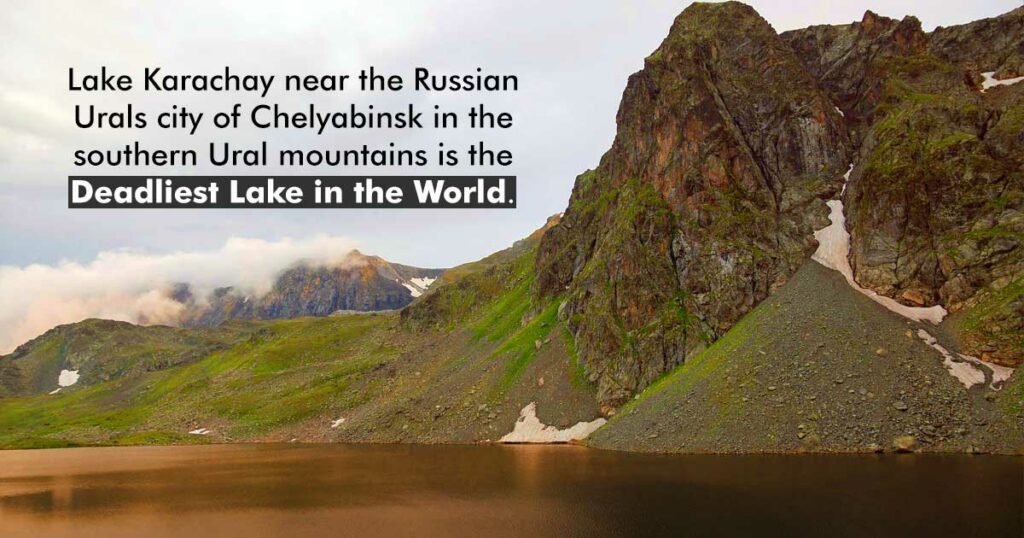
Russia is also the home of the deadliest lake in the world. Lake Karachay near the Russian Urals city of Chelyabinsk in the southern Ural mountains is the most dangerous lake. It is because of the nuclear wastes that get dumped into this lake. It is so radioactive that standing beside it for an hour can kill anyone.
(Source: BBC)
8. Russia has a National Sex Day
Russia has a National Sex Day. Share on XIn Russia, a unique celebration known as “Conception Day” or Procreation Day is observed annually on September 12th. This quirky holiday was popularized in the region of Ulyanovsk, the birthplace of Vladimir Lenin, as a creative initiative to boost the nation’s birthrate.
On this day, couples are encouraged to take the day off work and focus on having babies, emphasizing family and the importance of parenthood. The campaign has proven to be quite effective; statistics show that the birthrate in June—the month following Conception Day—tends to be higher than in other months.
These intriguing Russia facts highlight how cultural initiatives can influence demographic trends. Procreation Day is celebrated with various events and activities to promote family life and relationships. It’s a lighthearted approach to addressing serious issues like declining birthrates, showcasing the Russian spirit of innovation and resilience in tackling social challenges. With its mix of humour and sincerity, Conception Day continues to be a conversation starter about family, love, and the nation’s future.
9. Most Billionaires
Moscow, the vibrant capital of Russia, boasts a significant number of billionaires, ranking second among cities worldwide with 73 billionaires. This impressive figure highlights Moscow’s status as a major financial and economic hub. It follows closely behind New York, which leads with 82 billionaires, and Hong Kong, which has 75.
The presence of so many wealthy individuals in Moscow reflects the city’s dynamic economy, which has been shaped by various industries, including finance, technology, and natural resources. These billionaires often invest in diverse sectors, contributing to the city’s growth and development.
Some fascinating Russia facts include the luxurious lifestyles of these billionaires, which can be seen in their extravagant properties, high-end fashion, and exclusive events. Moscow’s opulence is evident in areas like the prestigious Rublyovka district, known for its lavish mansions and elite clientele. This concentration of wealth not only underscores the city’s economic prowess but also raises discussions about wealth distribution and social inequality in Russia. As a center for both opportunity and luxury, Moscow continues to attract attention on the global stage.
(Source: Forbes)
10. Biggest Drinkers
Russians are the world’s fourth-biggest drinkers. Until 2011, anything with less than 10% alcohol was considered a foodstuff – and not alcohol. Share on XRussians have long been known for their drinking culture, and they rank as the world’s fourth-biggest consumers of alcohol, trailing only Belarus, Moldova, and Lithuania. This high level of alcohol consumption is deeply rooted in social traditions and cultural practices, often involving vodka, beer, and other spirits during celebrations and gatherings.
Interestingly, until 2011, any beverage containing less than 10% alcohol was classified as a foodstuff rather than an alcoholic beverage in Russia. This legal distinction meant that drinks like beer were widely available and consumed, contributing to the country’s overall alcohol consumption rates.
These intriguing Russia facts shed light on the complexities of Russian drinking habits and their societal implications. While alcohol plays a significant role in social interactions, it has also raised concerns regarding health issues and addiction. In recent years, the Russian government has implemented measures to curb excessive drinking, including stricter regulations on alcohol sales and public awareness campaigns about the dangers of alcohol abuse. Despite these challenges, the drinking culture remains an integral part of Russian life, reflecting both its historical significance and contemporary social dynamics.
(Source: Wikipedia)
11. Coldest Inhabited Place On Earth
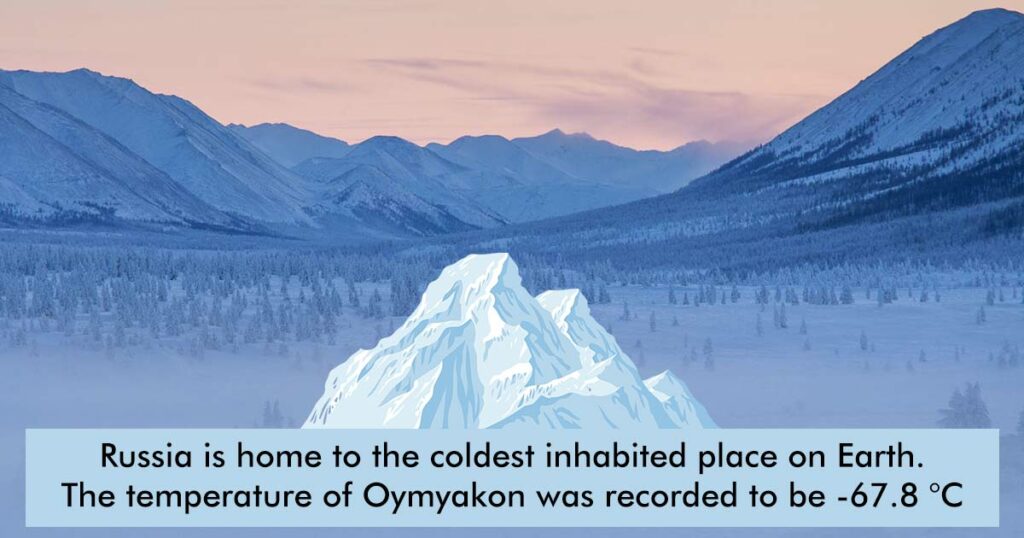
Russia is home to Oymyakon, the coldest inhabited place on Earth, where extreme temperatures can plunge to astonishing lows. On February 6, 1933, a record-breaking temperature of -67.8 °C (-96 °F) was recorded by its weather station, highlighting the harsh climate that characterizes this remote village in Siberia.
Situated in the Sakha Republic, Oymyakon experiences severe winters, with average January temperatures hovering around -50 °C. Despite these frigid conditions, around 500 residents call this icy locale home, showcasing remarkable resilience and adaptability to their environment.
Some fascinating Russia facts about Oymyakon include its unique lifestyle, where people have adapted to the cold by modifying their homes and daily routines. Traditional heating methods, special clothing, and a diet rich in protein help residents cope with the extreme weather. The village’s icy reputation draws tourists intrigued by the extreme cold, as well as researchers studying climate patterns and human adaptation to severe environments. Oymyakon stands as a testament to the endurance of life in one of the planet’s harshest climates.
(Source: The Telegraph)
12. World’s First Satellite
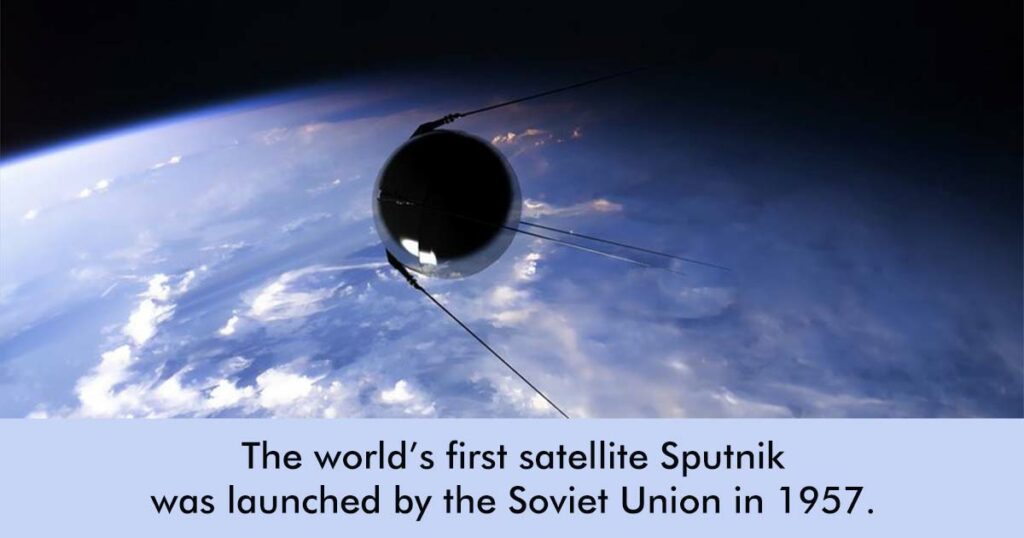
The world’s first satellite, Sputnik, was launched by the Soviet Union on October 4, 1957, marking a monumental achievement in space exploration and the beginning of the space age. This groundbreaking event not only showcased Soviet technological prowess but also initiated the intense space race between the United States and the Soviet Union during the Cold War.
Sputnik was a spherical satellite, about the size of a beach ball, weighing approximately 83.6 kilograms (184 pounds). Its successful launch sent shockwaves around the globe, capturing the world’s attention and igniting interest in space science and technology. The satellite transmitted beeping signals back to Earth, which could be received by amateur radio operators and scientists, further fueling public fascination with space exploration.
These Russia facts highlight the significance of Sputnik as a catalyst for advancements in science and technology. The launch led to increased funding for research and development in both the Soviet Union and the United States, ultimately resulting in numerous space missions, including human spaceflight. Sputnik remains a symbol of human ingenuity and the quest for knowledge beyond our planet.
(Source: NASA)
13. Dialing Code
The dialing code for Russia is +7, often associated with the iconic James Bond, whose agent number is 007. This code is essential for international calls, allowing communication with anyone in Russia from abroad.
When dialing Russia, you would begin with the international access code of your country, followed by 7 and then the local phone number. This system helps facilitate global connectivity and ensures that calls can be directed accurately across the vast distances that characterize Russia.
These intriguing Russia facts highlight not only the country’s telecommunications but also its global presence. With a rich history, diverse culture, and significant geopolitical influence, Russia remains a key player on the world stage. Understanding the dialing code is just one of many ways to engage with this fascinating nation and connect with its people.
(Source: Country Code)
14. Russia Sold Alaska to the US
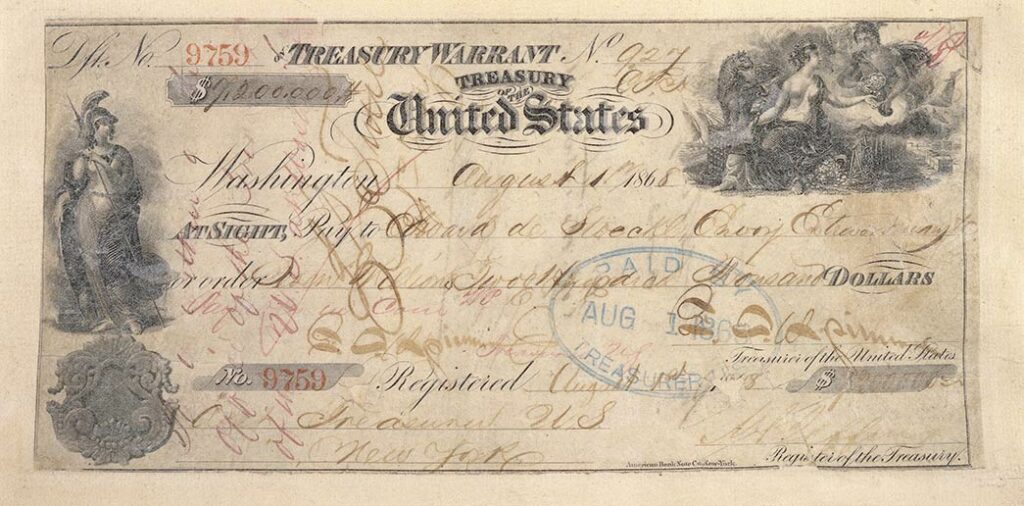
In 1867, Russia made a significant decision to sell Alaska to the United States for $7.2 million, a move that would shape the future of both nations. At the time, this purchase was seen as a strategic acquisition, expanding U.S. territory and access to resources.
When adjusting for inflation, the price paid for Alaska translates to approximately $118 million in today’s value. This sale, often referred to as “Seward’s Folly” after then-Secretary of State William H. Seward, was initially met with scepticism by some Americans who questioned the value of the barren land. However, the discovery of gold, oil, and other natural resources in Alaska later proved the purchase to be an astute investment.
These Russia facts not only highlight a pivotal moment in U.S. history but also showcase the geopolitical dynamics of the 19th century. The acquisition of Alaska has since contributed to the cultural, economic, and strategic landscape of the United States, making it a valuable addition to the nation. Today, Alaska is known for its breathtaking natural beauty, diverse wildlife, and rich cultural heritage, demonstrating the long-lasting impact of this historic transaction.
(Source: LOC)
15. Record of Giving Birth
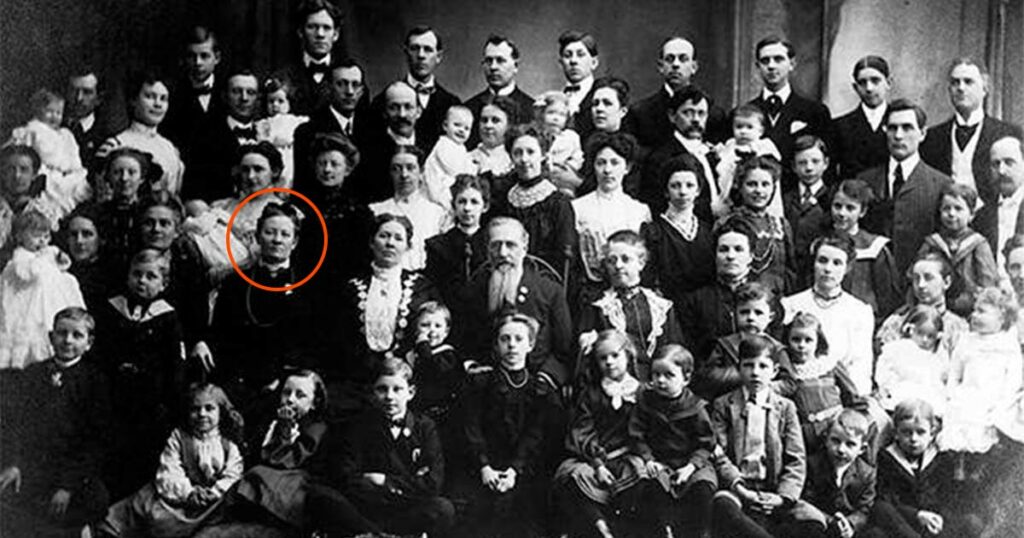
A remarkable figure in the history of childbirth, a Russian woman named Feodor Vassilyev holds the world record for giving birth to an astonishing 69 children. This extraordinary feat occurred in the 18th century, between 1725 and 1765, when she gave birth to a total of 16 pairs of twins, 7 sets of triplets, and 4 sets of quadruplets.
Feodor Vassilyev and his wife lived in Shuya, Russia, and their prolific family is often referenced in discussions about fertility and historical records. While the authenticity of some details surrounding her life and the accuracy of the numbers have been debated, this record remains a fascinating aspect of both Russian and medical history.
These incredible Russia facts not only highlight the extraordinary nature of human reproduction but also illustrate the historical context in which such events occurred. The legacy of Feodor Vassilyev continues to capture the imagination, serving as a testament to the complexities of family life and the human experience throughout history.
You may also like:
Wrapping Up
In conclusion, Russia’s rich history and cultural heritage are reflected in a multitude of intriguing facts that span various aspects of life, from geographical extremes to unique social traditions. The stories of extraordinary achievements, such as the record-breaking childbirth of Feodor Vassilyev and the launch of Sputnik, showcase the resilience and ingenuity of the Russian people.
The country’s vastness, evidenced by its multiple time zones and the coldest inhabited place on Earth, highlights the diverse environments that shape daily life. Additionally, the legacy of significant events, like the sale of Alaska and the celebration of Conception Day, underscores the intricate interplay of history, culture, and society.
Collectively, these insights provide a deeper understanding of Russia’s role on the global stage, its challenges, and its ongoing evolution, making it a nation of profound interest and complexity.
How many of these facts about Russia did you know before reading this? Share your result in the comment section below!



